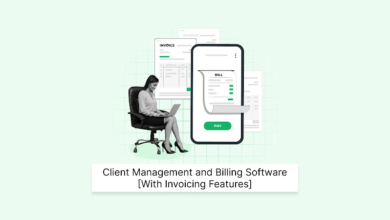How to Identify Key Elements in a Hush Money Trial?
Do you wonder what a high-profile hush money trial is like? If allegations of payoffs and campaign finance violations sound interesting, then understanding how to identify critical elements in the trials is essential to understand what unfolds.
Hush money cases usually involve public figures and often reveal private indiscretions, so they capture widespread attention.
Unraveling what constitutes a legal campaign contribution and what makes for an illegal hush money payment is at the heart of many such trials. Breaking down the major components and learning some of the strategies that both sides employ will help you follow these intricate legal battles.
Read on to Identify Key Elements in a Hush Money Trial.
Financial Transactions
The very first thing that the investigating team does in the case of a hush money trial is trace the financial transactions so that the money paid can be established through the flow of funds.
The investigating team goes through bank records, checks, or any form of digital transfer to track down payments made as hush money and who received them.
For example, in one recent high-profile case, more than $ 130,000 was transferred through many accounts to guarantee secrecy. This tracking procedure identifies the money and its motive, which is vital in court for the prosecution to prove that the money has indeed been paid.
Roles and Responsibilities of a Hush Money Case
Each person involved in the hush money case has different roles and responsibilities. Basically, the payer of the hush money, who is trying to suppress damaging information, has been the focus of laws.
Sometimes, lawyers and accountants may also be involved in the logistics of making such payments. In 2018, just recently, there was a case in which a lawyer arranged a $150,000 hush money payment while he was advising on legal loopholes for maintaining secrecy.
These roles become essential points of scrutiny during the proceedings of law, through which the course of the trial depends.
Understanding Charges and Penalties
The legal consequences of a hush-money trial can be bleak. A person charged guilty of arranging or paying the hush money might have to pay a heavy fine or face imprisonment.
Penalties are broad but usually are based on the amount involved and local laws. For instance, in different states within the United States, such individuals have been penalized with penalties ranging from a hefty fine to imprisonment for five years, according to the facts and circumstances of the case and the motive behind the money in terms of its effect on public processes. This serves to deter the commission of such crimes.
Financial Documents and Their Significance
The real meat in any hush money case is evidence, much of it financial documents: bank statements, payment receipts, and e-mails about money transfers that could prove who paid or received the hush money and when.
In recent cases, for example, investigators used data from over 10,000 e-mails and hundreds of financial records to follow the flow of illicit funds. This evidence is vital in court because it may prove whether the hush money was actually paid and whether it was ever aimed at hiding something.
The Role of Financial Institutions in Hush Money Trials
Banks and other financial institutions play a crucial role in hush money trials. They can find records that show how money is moved from one account to another.
The law requires these institutions to report suspicious activities that may indicate hush money is being used to cover up wrongdoing.
For instance, recently, following a regulatory change mandating banks to put in place better monitoring systems, there was a 20% increase in reported suspicious transactions, helping law enforcement pursue the money and ultimately bringing justice in such cases.
Tax considerations
In a case involving hush money, there are tax issues to be considered in uncovering possible financial irregularities. All payments made under a hush money deal may not be reported to the taxation authorities, which is an offense.
This unreported payment is likely to involve severe legal issues when discovered. For example, if one claims hush money as a deduction for business expenses, it will most likely attract the attention of the tax authorities, who will audit and fine such people.
As such, the taxability of the hush money example is relevant not only to determine whether is hush money legal or not but also in relation to establishing the gravity of an offense involving hush money.
Reason it Matters in a Court of Law
The legality of the hush money and particulars of a hush money deal have become the basis of many court cases. It is incumbent upon judges and juries to decide, with respect to the particular payment in question, whether their intent was one of influence or prevention.
For example, in legal jurisdictions, if the hush money is regarded as a bribe, it can have bearings on criminal charges.
That is why the details of the transactions involving hush money are so heavily scrutinized in court to determine whether hush money is legal or otherwise under certain conditions, which can actually make all the difference between acquittal and conviction.



